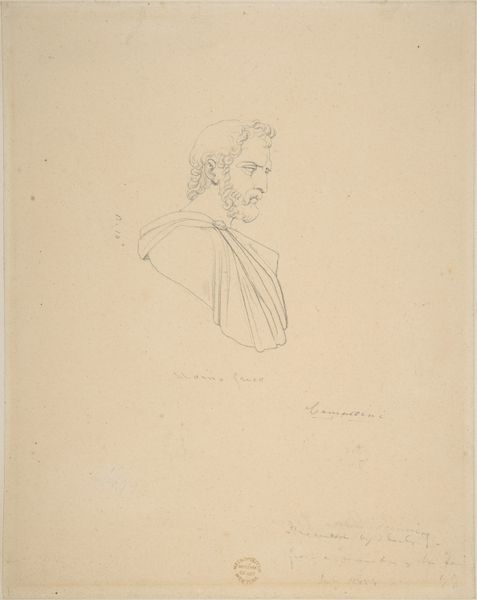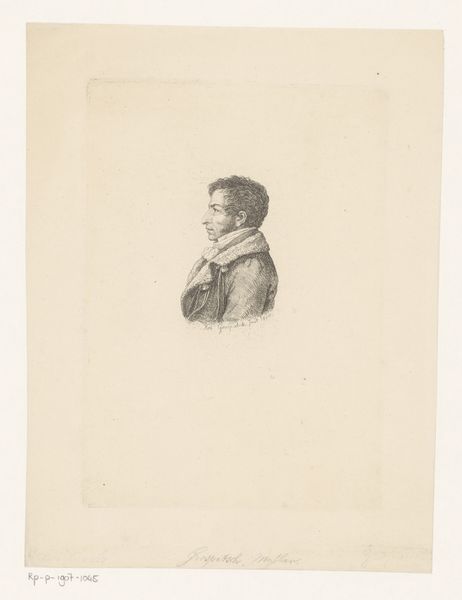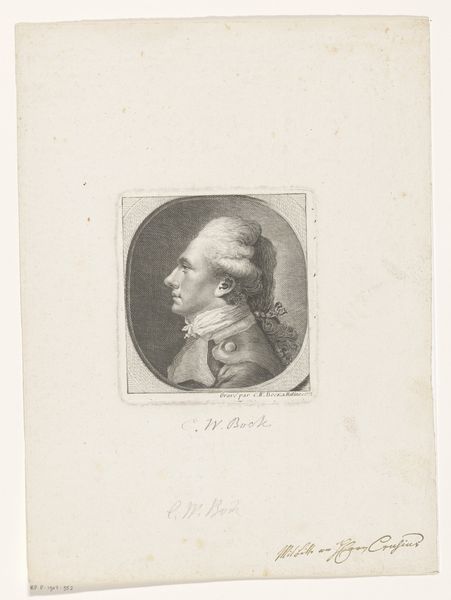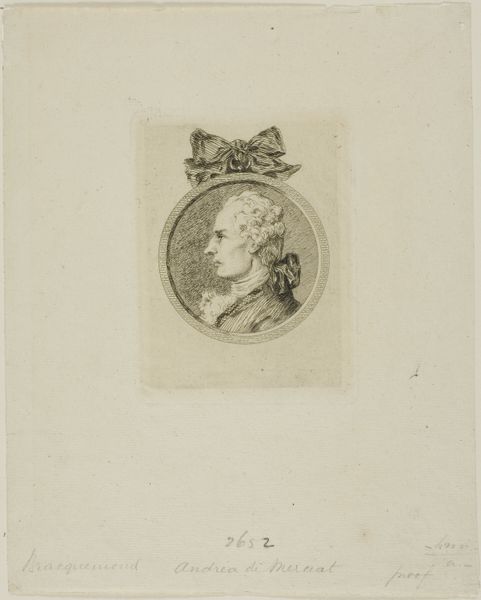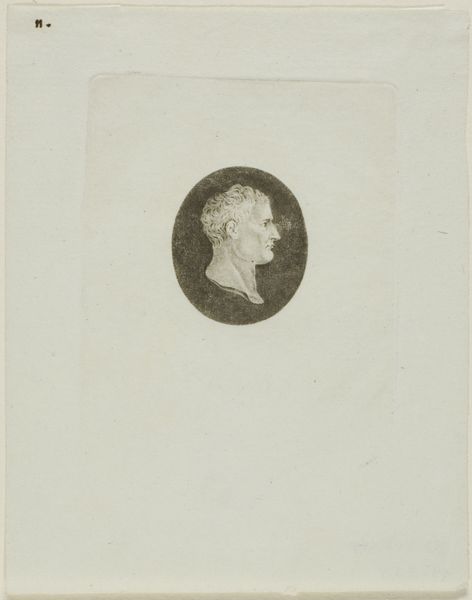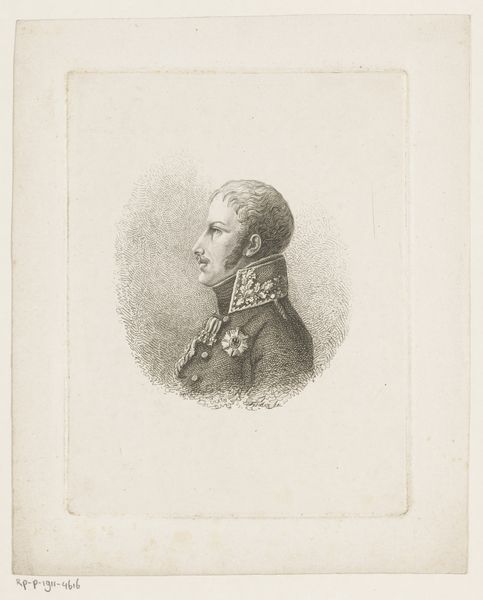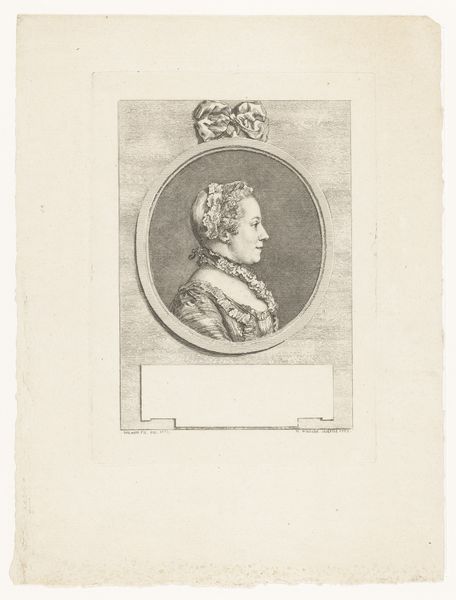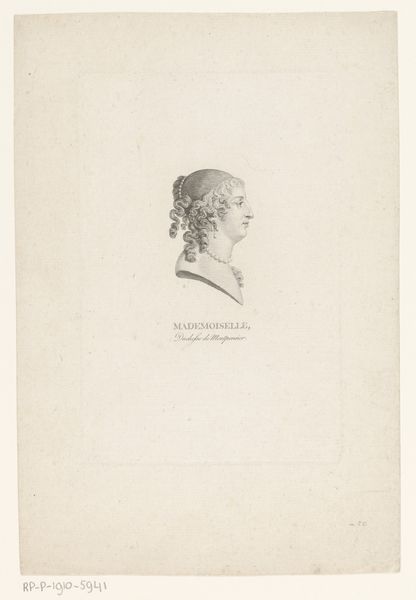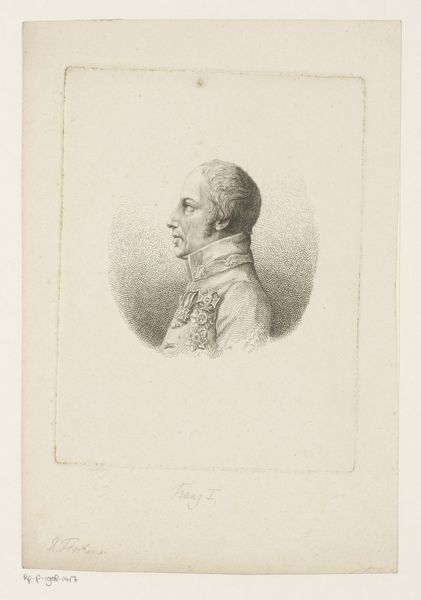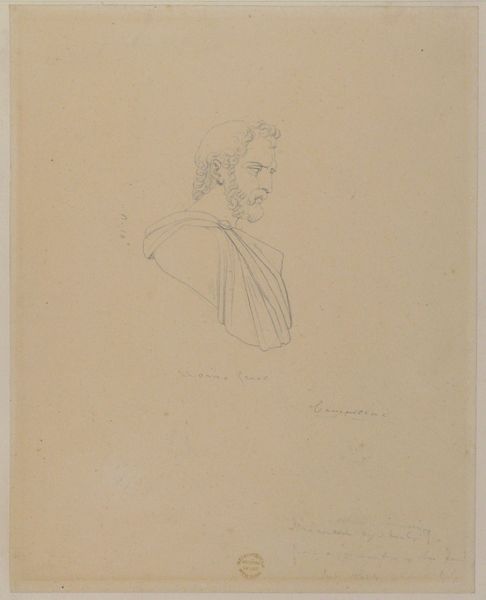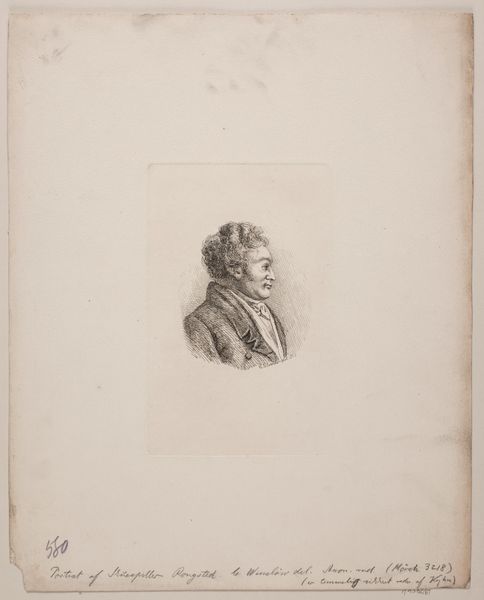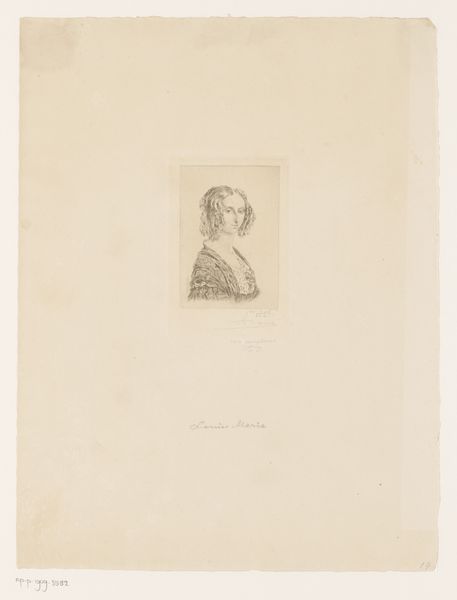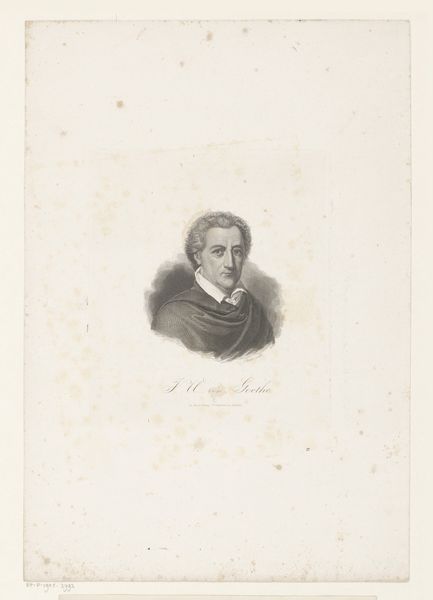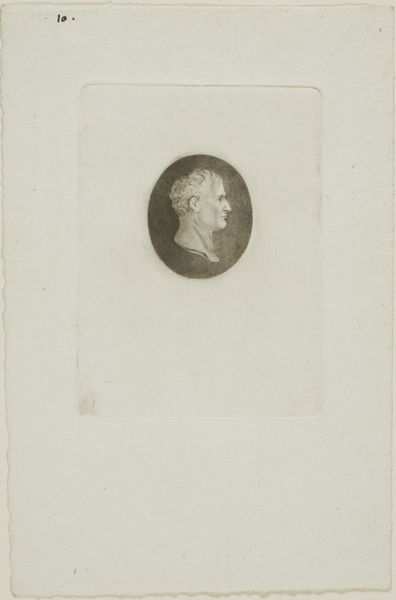
drawing, pencil
#
portrait
#
pencil drawn
#
drawing
#
pencil sketch
#
pencil drawing
#
romanticism
#
pencil
#
realism
Dimensions: height 133 mm, width 95 mm
Copyright: Rijks Museum: Open Domain
Curator: Before us is a portrait drawing of Peter Ludwig Willmes, rendered in pencil by W. Harmes between 1800 and 1867. It captures Willmes in what appears to be a reflective pose. Editor: Yes, there’s an intensity there, isn’t there? Almost confrontational despite the muted palette. The artist catches the sitter turning back over his shoulder, giving us a clear sidelong view. Curator: Indeed. Harmes employs a rather delicate touch with the pencil, capturing details like the wisps of Willmes's hair and the subtle folds of his coat. Considering the time, portraits like these played an important role, shaping public perception of the sitter's status. Editor: And I wonder about *who* was getting portrayed, in this era. Who was deemed worthy, and whose stories were intentionally left untold? These kinds of images often reified existing power structures, reinforcing an exclusive view of society. Who was Willmes, and what part did he play in maintaining or challenging these norms? Curator: That's a very good question to explore further. What’s clear is that, judging by the inscription, it’s not just a study. It may have been a presentation piece, carefully crafted for public view. The sharp, clean lines suggest a confidence in the artistic conventions of realism, and perhaps some leaning toward romanticism in its expressive execution. Editor: The gaze itself draws me in, though. It’s as though Willmes wants to engage with us, or even warn us. Is it defiance? Weariness? What does that say about representation then, and how this kind of formal artwork was distributed? And more, how can we bring those critical awarenesses to viewers today? Curator: I agree. Portraits offer a fascinating glimpse into the social values and aspirations of their time. Editor: Definitely a conversation starter for reflecting on visibility, power, and representation across time. Curator: And that reflective quality allows the viewers to continue the discussion in the present.
Comments
No comments
Be the first to comment and join the conversation on the ultimate creative platform.
